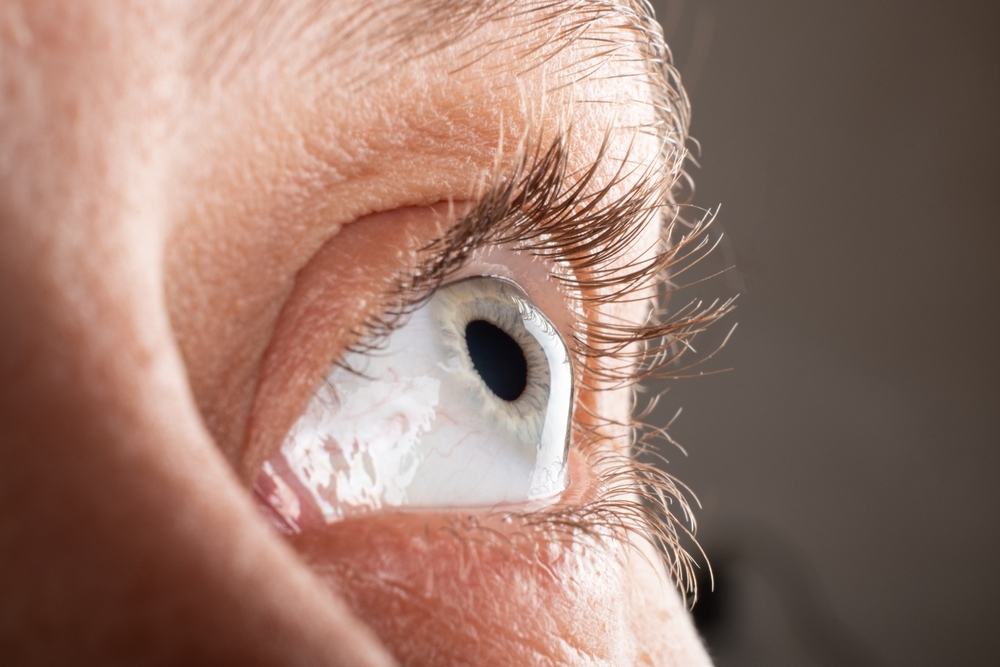
Keratoconus is a progressive eye condition that affects the cornea, the clear front part of the eye. In a healthy eye, the cornea is round and dome-shaped. However, in a keratoconus-affected eye, the cornea progressively thins and bulges out into a cone-like shape. This distortion of the cornea causes vision to become distorted and blurry. It can also lead to sensitivity to light and glare.
The exact cause of keratoconus is unknown, but it's believed to be a combination of genetic, environmental, and hormonal factors. This condition usually develops in the teenage years and progresses until the mid-thirties, although it can occur at any age.
Understanding the Stages of Keratoconus
As with many medical conditions, keratoconus progresses through different stages, each with unique symptoms and challenges. Understanding these stages can greatly help in managing the condition and planning appropriate treatment strategies.
The stages of keratoconus are generally divided into three categories: early, progressing, and advanced. Each of these stages has its own set of symptoms, changes, and complications. The progression from one stage to the next can take several years, and the rate of progression varies from person to person.
Keratoconus is a progressive condition, meaning it worsens over time. The good news is that with early detection and proper treatment, the progression can be slowed, and vision can be preserved. Let's examine each of these stages in more detail.
Early Stage Keratoconus: Symptoms and Diagnosis
The early stage of keratoconus may go unnoticed as the symptoms can be mild and easily dismissed. Symptoms at this stage often include slight blurring and distortion of vision, increased sensitivity to light, and mild eye irritation.
Many people in the early stage of keratoconus often find that their prescription for glasses or contact lenses changes frequently. This is because the cornea is beginning to deform, and the existing prescription no longer corrects the vision adequately.
Diagnosis at this stage can be challenging as the symptoms can be similar to those of other common eye problems. However, with the use of modern diagnostic tools like corneal topography, which maps the curvature of the cornea, and optical coherence tomography, which provides a detailed view of the cornea's layers, early stage keratoconus can be accurately diagnosed.
Progressing Stage Keratoconus: Changes and Challenges
As keratoconus progresses, the changes in the cornea become more pronounced. The cornea continues to thin and bulge, causing increasing distortion of vision. The eye's ability to focus becomes compromised, leading to significant blurring and double vision.
The progressing stage of keratoconus can present many challenges. Regular activities like reading, driving, or even recognizing faces can become difficult. There may also be increased sensitivity to light and glare, making it uncomfortable to be in bright environments.
The challenges of this stage require a more aggressive approach to treatment. This may include the use of specialized contact lenses to correct the irregular shape of the cornea, or a procedure known as corneal collagen cross-linking, which strengthens the cornea and slows the progression of the disease.
Advanced Stage Keratoconus: Complications and Treatments
In the advanced stages of keratoconus, the cornea has thinned and bulged to a considerable extent. This can lead to significant visual impairment and may cause scarring of the cornea. The most common symptoms at this stage are severe blurring and distortion of vision, sensitivity to light, and frequent changes in eyeglass prescription.
The advanced stage of keratoconus can lead to complications such as acute corneal hydrops, a sudden and painful swelling of the cornea. This condition requires immediate medical attention.
The treatment options for advanced keratoconus include corneal transplant surgery, where the diseased cornea is replaced with a healthy donor cornea. Another option is the use of scleral contact lenses, which cover the entire corneal surface and provide improved vision by creating a smooth optical surface.
Importance of Regular Eye Check-ups in Keratoconus Detection
Given the gradual and often subtle onset of keratoconus symptoms, regular eye check-ups are crucial in detecting this condition early. An eye care professional can perform a comprehensive eye exam to check for signs of keratoconus, even before symptoms appear.
Early detection can lead to early treatment, which can slow the progression of the disease and preserve vision. It's especially important for those with a family history of keratoconus or related eye conditions to have regular eye exams.
In addition to regular check-ups, it's also important to be aware of any changes in your vision or comfort of your eyes. If you notice any changes, such as increased blurring, distortion of vision, or sensitivity to light, it's important to seek medical attention promptly.
Conclusion
Understanding the different stages of keratoconus is crucial in managing this condition effectively. Each stage presents its own unique challenges and requires a tailored approach to treatment. Whether you're in the early, progressing, or advanced stage of keratoconus, remember that the key to preserving your vision is early detection and appropriate treatment.
By staying informed about the stages of keratoconus, you're taking an important step towards preserving your vision and maintaining your eye health. Remember, regular eye check-ups are crucial in detecting keratoconus early. If you or a loved one are experiencing any symptoms of keratoconus, or if you have a family history of the condition, seek medical advice promptly.
For more information on the different stages of keratoconus and what you need to know, visit Advanced Eyecare Consultants at our Lake Zurich or Libertyville, Illinois office. Call 847-438-7700 or 847-994-4500 to schedule an appointment today.








